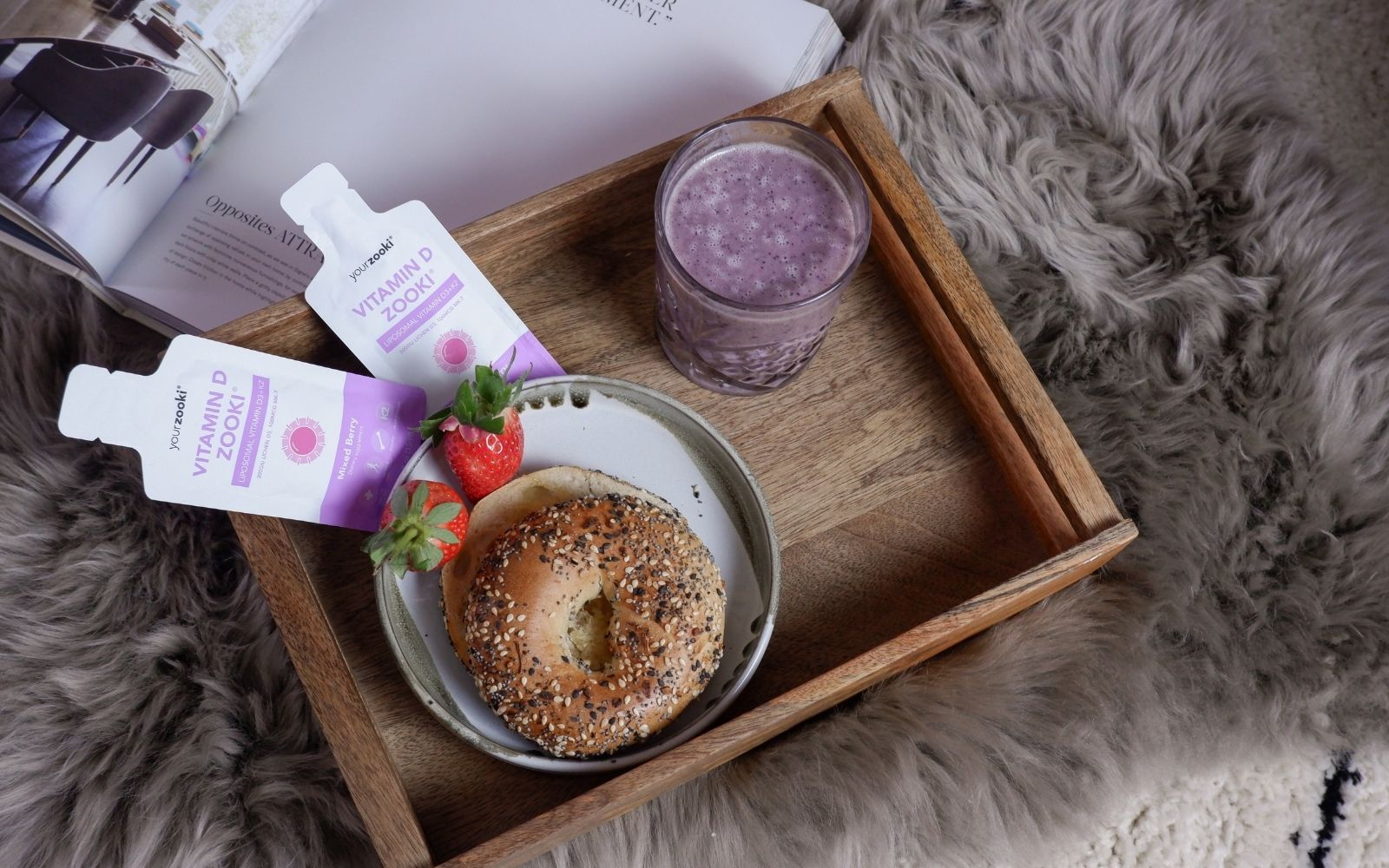What is vitamin D?
Vitamin D, aka the sunshine vitamin, has emerged as somewhat of a buzzword over the last two years due to the pandemic. Google even noticed a rise in searches for vitamin D as an increasing number of people rushed to learn more about this popular vitamin! To help answer your burning vitamin D questions, nutritionist Riya Lakhani has provided the answers to some of the most Googled ones.
Why is vitamin D important?
Vitamin D is one of the four fat-soluble vitamins, meaning that it does not dissolve in water and is absorbed through the gut with the help of fat. It’s a unique micronutrient which has the properties of both a vitamin and hormone! In the body, vitamin D promotes calcium absorption in the gut, thereby helping to form and support strong bones. It also supports the immune system by triggering the body’s immune cells to produce infection-fighting antibodies, maintains joint and muscle strength, and studies even suggest that vitamin D can improve brain function, boost the production of serotonin (the happy hormone linked to positive mood) and may even support heart health.
What are the symptoms of a vitamin D deficiency?
Symptoms of a vitamin D deficiency can vary from person to person and often causes no symptoms at all (at first). The signs are usually subtle and can go on to trigger low mood (due to a lowered production of serotonin), muscle weakness, aching bones/ heavy legs, a weakened immune system - manifesting as frequent coughs and colds - and possibly fatigue. Emerging research also indicates that low levels of vitamin D are associated with weight gain, an increased risk of high blood pressure and pregnancy complications such as gestational diabetes, pre-eclampsia (increased blood pressure) and low birth weight. So, it’s really important to ensure you’re getting your daily dose of vitamin D no matter your age!
What are natural sources of vitamin D?
We can get small amounts of vitamin D from foods such as fatty fish, egg yolk, mushrooms, milk and cheese. Many foods are also fortified with vitamin D, such as plant-based milks, orange juice, bread and cereals. Whilst we can get some vitamin D from food, our main source of vitamin D is sunshine. While you’re outside soaking up the sun, your body is absorbing UVB rays from sunlight which triggers the synthesis of vitamin D3 in the skin.
When’s the best time to get vitamin D from sunlight?
We produce the highest amount of vitamin D when the sun is at its highest point, which tends to be around midday. As UVB rays are the most intense at noon, we only need around 15-20 minutes out in the sun to make a sufficient amount of vitamin D - though this does vary from person to person. You might also find it helpful to take a look at your shadow when you’re outside. If your shadow is shorter than you, your skin will be producing vitamin D at its best.
How much vitamin D is enough?
Children from the age of 1 year and adults need 10 micrograms of vitamin D per day. Getting this amount can be pretty difficult to reach, especially over winter months and when staying indoors more, which is why Public Health England recommend that everyone supplements with Vitamin D.
Can I still get vitamin D from winter sunshine?
During winter, the sun is lower in the sky and doesn't contain enough UVB radiation for the skin to be able to produce vitamin D. That’s why supplementation during winter months is strongly recommended.
Does sunscreen block vitamin D?
Sunscreen may decrease vitamin D production by blocking UVB absorption. However, as sunscreen can prevent sunburn and skin cancer, it’s definitely important to apply it! If you’re worried that you’re low in vitamin D, in addition to getting some sunlight, it’s worth consuming foods that contain vitamin D as well as considering supplementation.
What's the difference between vitamin D2 and D3?
Vitamin D2 is known as ergocalciferol and comes from plants such as mushrooms or fortified foods. Whereas vitamin D3 is known as cholecalciferol and is predominantly found in animal-sourced foods such as egg yolk and oily fish. When it comes to boosting vitamin D levels in the body, the liver metabolises vitamin D2 and D3 in different ways - research suggests that vitamin D3 is more active in the body than vitamin D2.






Share:
Vitamin C: The most Googled questions answered
Collagen: The most Googled questions answered